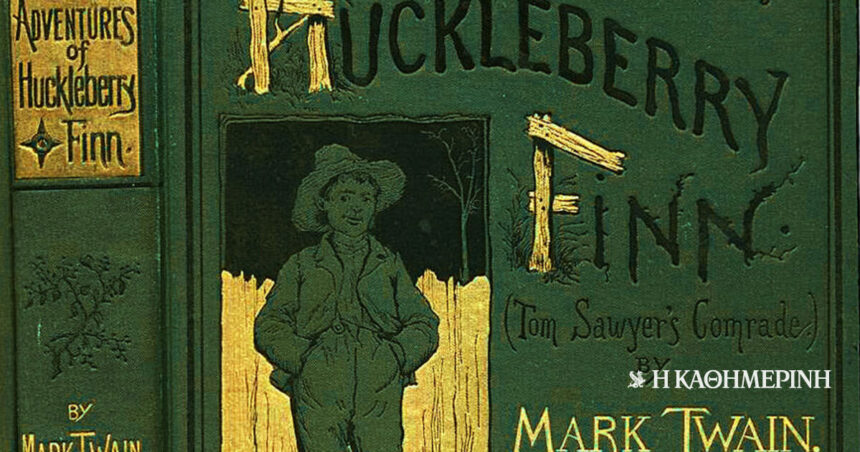The novel of the American writer Mark Twain originally published in United Kingdom and at the beginning of the following year it was also released on USA.
Written between 1876 and 1883, Twain originally envisioned it as a sequel to his highly successful and timeless work The Adventures of Tom Sawyer. After all, Huck Finn is a fictional friend of Tom Sawyer. However, he would follow a more “autonomous” course.
The pages of Huck Finn convey images of society and environment from the areas around the Mississippi. Issues related to race and identity, what it means to be free and civilized, the content of humanity and social responsibility are explored in a changing social reality, such as that of the American South just before the Civil War (1861-1865).
The author primarily wanted to highlight the hypocrisy in a society that is ostensibly based on morality, but accepts slavery.
Twain primarily wanted to highlight the hypocrisy that exists in a society that is at least ostensibly based on morality, but accepts slavery. To achieve this he chose a metaphor: to show Huck’s father enslaving, abusing and isolating his son. After escaping, Huck meets Jim, a slave, who has also just escaped from his cruel owner – so they’ve both essentially done the same thing. This encounter will result in a journey of maturation, with Huck overcoming his prejudices and connecting deeply with Jim. Throughout history, Huck is presented in constant conflict with the moral values of the society in which he lives. Although he is unable to consciously criticize them, he transcends them by making a choice based fundamentally on the value of friendship and treating Jim not as a slave but as a human being of value. As Twain wrote in his notes, his desire was to show that a heart that is “pure” can rise above the value-distorted consciousness—if the two sides of the human self come into conflict—and prevail over the latter.
When the book was released in the United States, it was heavily criticized. Several libraries banned it from their shelves, as well it was considered to contain a “brutality” which could not be tolerated. According to the Boston Transcript, “the Concord Public Library committee [στη Μασαχουσέτη] decided to ban Mark Twain’s last book from the library. A committee member […] while he doesn’t want to call it immoral, he believes it contains […] humor […] gross”. The committee members, according to the publication, called it “true garbage” and a book suited “more to the slums than to intelligent, respectable people».
The book is considered one of the most important works of American and world literature and has been translated into many languages.
Criticism of the book, however, but from another point of view was also later, mainly regarding the use of stereotypes about slaves, as well as the use of the racist “nigger”, which led to the change of the word in the last English-language editions.
In any case, the book is considered one of the important works of American and world literature and has been translated into many languages. Yes, O Ernest Hemingway he considered it the best book ever handed to him, while the Pulitzer Prize winner Ron Powers has declared it to be a timeless “inclusive” masterpiece.
Column editor: Myrto Katsigera, Vassilis Minakakis, Antigoni-Despina Poimenidou, Athanasios Syroplakis




